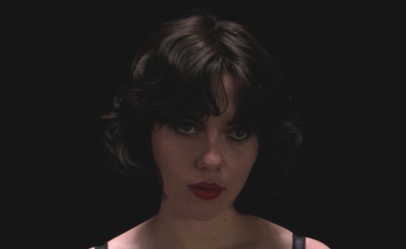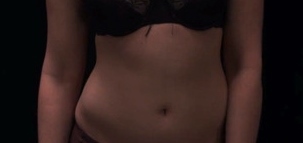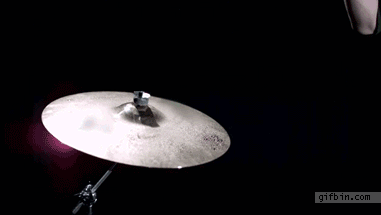video trailer for
SORROWTOOTHPASTE MIRRORCREAM
A collection of poems from Kim Hyesoon.
Translated by Don Mee Choi.
(video by The Viper, Paul Cunningham)
—————————————————
and “Filthy filthy filthy I’m so filthy” reminds me I’ve been dreaming Ron Silliman again
—————————————————
Tommy Pico’s Absent Mindr

Poetry and eBooks have never played well together because, for instance, fixed line lengths don’t jive with the reader’s ability to adjust type size (poetry is too rigid). There are, of course, some clunky workarounds, like including a note for users to match their settings so that the longest line in the book is unbroken. Certainly this doesn’t have to be an issue; it’s something an HTML5 developer could solve quickly, I think—but why should they?
Limitations drive ingenuity. I’ve often wondered if, say, no one figured out how to make cars, would something else have been invented? Antimatter transportation!
Tommy Pico, who does Birdsong, released what he calls the first poetry App (for iOS and tablets) yesterday. Called Absent Mindr, it’s a “ch-app” he says—of course it is!—with 24 poems in four sections, situated alongside audio playback of him reading the poems, and bright collages by Cat Glennon.
The poetry is cool. That’s first. I really appreciate that the literature isn’t secondary to techcrunches, and the press release for this app is all about the poetry. Certainly it’s good stuff (read “Inheritance” at Best American Poetry), and Tommy “Teebs” Pico’s voice is pitch perfect on the audio (which can be listened to when you’re not connected, like on the subway, because all the content is a download), but what I’m really impressed by and excited about is the presentation, which is slick and gorgeous. It’s antimatter transportation to cars. The app considers the poetry, the art matches the tone. Books rarely match content with UX this well.
I think apps are expensive to create, whereas eBooks are free—but Absent Mindr suggests there’s a good future for presenting poetry this way. As startups like Atavist, Byliner, Oyster, Zola, Wattpad, Readmill (RIP) and Medium etc explore how to monetize this new frontier, it will be interesting to see what DIY pioneers like Tommy Pico create in the margins.
Anecdotally, I got my hands on the app just a day before I went to NYC for the Chapbook Festival. He did a good job spreading the word, because the room was abuzz about it (ie. three or four people mentioned the app to me while I was there). Chapbooks are a space traditionally reserved for handmade, crafty, papery books that fold, but they are open to sweet new fields like—may I suggest—chappbooks.
Crad Kilodney passed away yesterday. Here’s something on Crad by Richard Grayson.
……………….Am I right in thinking that Under The Skin is a kind of beautiful, thought-provoking movie that’s worth seeing, hypnotic, etc, etc…?? But just not quite right??…(I mean that can be a good thing)…But maybe it could have benefited from more terrifying “baby alone on the beach” kind of stuff?? I dunno. Watcha think ??…………..
Crystal Eaters by Shane Jones
 Crystal Eaters
Crystal Eaters
by Shane Jones
Two Dollar Radio, June 2014
202 pages / $16 Buy from Amazon or Two Dollar Radio
The first, most obvious observation to make about Shane Jones’ Crystal Eaters is that it begins with a countdown. Its first page is numbered 183, and it descends from there, 182, 181, 180, on and on, a timer that makes this novel feel like an unusually rigid experience, temporally speaking. After all, most books are objects that readers pick up and interact with on their own terms, at their own individual paces. Crystal Eaters’ countdown, however, makes the book feel fleeting. While in the midst of reading it, I imagined it still counting down even when sitting on my coffee table, closed—like I would eventually open it again only to find all its pages blank, its time expired.
Crystal Eaters focuses on a village that “survives on myth,” and Jones’ paginated countdown helps immerse the reader in the village’s central belief: that human beings are filled with crystals—100 at the time of birth—which crystals are then lost over the course of a life (bled out, vomited up, etc. etc.), until a person’s number reaches zero, and that person dies. The crystals are multi-colored, and Jones writes of village kids witnessing “their parents vomiting blue and yellow slush into kitchen sinks, toilets, couch cushions, their laps.” Illness in this book is surprising in its glowing, cotton-candy brightness. Almost psychedelic.
Jones’ cornerstone character—named Mom—is an example of psychedelic sickness. Shriveled by illness, Mom spews red everywhere at dinnertime. She’s down to her last few crystals, and she will die soon, a reality with which her family struggles. Her husband—named Dad—is aloof, trying to make the impending tragedy easy for everyone, but ultimately helpless against his wife’s disease. Their daughter—named Remy—believes that there must be a way to increase a person’s crystal count, thus staving off death. “The universe is a system where children watch their parents die,” perhaps, but not Remy: “She’ll save Mom from experiencing the number zero.”
A fourth character, however, expands the novel’s scope beyond the village. This character—Mom and Dad’s son, and Remy’s brother—is imprisoned, and his name is Pants McDonovan. (This may be the key question of my entire review: Do you or do you not want to own a novel that features a character named “Pants McDonovan”?) Pants used to be a revolutionary, waging a war against the unnamed metropolis that inches closer to the village each day (modernity threatening to engulf the village’s way of life). Now, Pants lingers in his cell, eating pieces of his secret stash of “black crystals.” No villager apart from Pants has ever seen a black crystal before; they exist as part of the larger system of myth that Jones suggests through his use of in-text citations, e.g., “His left eye drips crystal (Chapter 5, Death Movement, Book 8),” and, “the city has powers (Chapter 14, Resurrection, City Hospital Myth).” Remy thinks these black crystals might hold the secret to increasing Mom’s crystal count, but Pants, locked away from his family and unaware of the severity of Mom’s illness, uses the crystals in a different way: he ingests them to prompt hallucinations that help him escape the indignities of prison life.
April 14th, 2014 / 10:00 am
The Selected Letters of Robert Creeley
 The Selected Letters of Robert Creeley
The Selected Letters of Robert Creeley
Edited by Rod Smith, Peter Baker, & Kaplan Harris
University of California Press 2014
512 pages / $65 Buy from Amazon or University of California Press
The Selected Letters of Robert Creeley is an engaging, thoroughly worthwhile selection of the poet’s correspondence spanning his complete life. The editorial work done here is quite impressive. The only areas to be possibly improved upon would be further notes in the back of the book and more illustrations. The letters span some sixty odd years, so although Creeley is perhaps one of the greatest over-photographed poets of our time it seems appropriate to have at least one photograph per decade. As it is there’s about three, including the photo on the cover. It is admittedly difficult to locate yet-unseen images of him, but several pages of reproduced letter manuscripts or perhaps images of this or that difficult to obtain publication would have sufficed instead. And it proves difficult not to wish for some further elaboration upon the minimal notes included. Not every reader has the book open next to the computer to take advantage of Wikipedia and Google. Yet as stated the overall skilled arrangement of the whole book is such that these are minor quibbles.
Creeley himself well understood the massive assembling project that any selection of his letters represented. Writing to editor Rod Smith, Creeley describes his sense of how “some general ‘map’ or sense of focus or parameter would be the first need.” He then immediately suggests the then-recent “selection of [Charles] Olson letters–or Gregory’s, just out from ND” as some examples of what he has in mind as successes. The latter volume, An accidental autobiography: the selected letters of Gregory Corso (New Directions “ND” 2003), I fondly recall a poet-pal curling up with in bed while down LA’s Chinatown for a reading, a small group of us having driven down for the event.
Creeley’s Selected, however, easily outshines my experience of reading Corso’s correspondence. This is no small feat given that so little is readily available concerning Corso, while material on Creeley is quite plentiful. I say this having an equal interest in both poets and having read ALL available material on each of them. Corso’s letters, for all his charm, are just too repetitive. They round out the experience of his poems but are ultimately as inhibited by his vices as the poems too often sadly prove to be. On the other hand, Creeley’s letters truly offer all that any of his readers might imagine and more. Not that Creeley didn’t indulge his share of vices: mention of numerous illicit substances make repeated revolving door appearance in the letters as do his (nearly) overlapping romances and marriages.
As a persistent reader of all things Creeley I would have thought there was little to be newly discovered about his life and writing. But the letters quickly prove just how wrong it is to make such an assumption. The simplest of fresh things I’ve come across is Creeley’s repeated use of “voila” throughout his correspondence. He’s usually using it as a turn of phrase to sum up his recounting of some recent excitement to a correspondent. Often it occurs near either the conclusion of the entire letter or some lengthy passage in particular, as if to say “see what I mean! And so now:” before continuing on to his next thought.
This reoccurring word appears early on in the letters and at first had me thinking it was something he just tried out which would then disappear as time went by; but I found it continued throughout decade after decade. This caught my attention because it is not a regularly used figure of speech I’ve found in any of Creeley’s other writings, poems, published interviews, essays, etc. where appear an abundance of what I term Creeleyisms. Familiar phrasal patterns to which he easily returns over and over again, yet the “voila” is present just in his correspondence. My new found Creeleyism: Voila.
April 14th, 2014 / 10:00 am
Bryan Coffelt
Person
It looks around after it pokes its head out and it sees that it can still make McDonald’s breakfast if it hurries.
Person
She goes to school, she fingerpaints the universe, she responds to stimuli, she fits her responses in her lunch box, she talks like “I am embarrassed of this lunch box,” she twinkles and thinks of what a gaping asshole the future is. She does karate on a classmate, she goes home, she does karate on the darkness.
People
If you really want to know someone, watch how they cut meat.
People
“Here is my lighter. Don’t look at me, and don’t fucking hurt yourself.”
“Here is my fucking Gmail password, don’t look at me.”
“Here is my favorite book in the world, fucking read it. Don’t fucking look at me.”
“Here is my fucking full external hard drive, don’t look at me.”
Person
She likes chicken on her salad. She hates the impermanence of lettuce. She has thoughts like, “I can feel it moving through me. My body is a level of Donkey Kong.”
People
“In five years, we will have at least one,” she said. Then, five years later, we had a squirming, sloppy little child. He swam out of her backwards, which made me nervous. When he dropped into the doctor’s thinly latexed fingers, I choked on my spit and coughed, trying to struggle out that I loved him.
The doctors wiped grayness from the Tonka toy of a man. I felt, for whatever splash of seconds fucking minutes, that he would be the one thing that would not drag or be dragged through it all. I thought of my own undoing, the way I look at myself in the mirror now and consider myself as a piece of gutted history, a product, phallic, a fuck ton of haircuts.
People
Someone will eventually say, “I remember when this was a Denny’s,” and everyone will feel like they’ve been shoved.
Bio: Bryan Coffelt lives in Portland, OR. These pieces are from an as-of-yet-untitled book that is forthcoming from sunnyoutside press.
Elmer Crowley: a katabasic nekyia by Tom Bradley
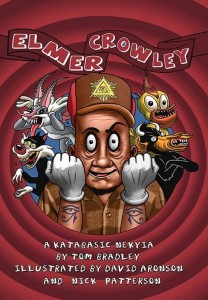 Elmer Crowley: a katabasic nekyia
Elmer Crowley: a katabasic nekyia
by Tom Bradley
Illustrations by David Aronson and Nick Patterson
Mandrake of Oxford Press, 2014
134 pages / $14.99 Buy from Amazon or Mandrake of Oxford
Aleister Crowley is thinking about Germany’s late chancellor:
…my magickal child… who queefed out of my psychic vagina at an unguarded moment…[who] flopped from my left auditory meatus like a menstrual clot with incipient toothbrush mustache…
His mind wanders, logically enough, to Esoteric Hitlerism, the foetal religion presently aborning in Chile. He would like to drop by Santiago and have a chat, perhaps to “glean some intelligence from the gauchos.”
But it’s too late. No more time for the transoceanic jaunts that have varied his long life and kept boredom at bay. The Great Beast 666 happens to be on his death bed. Chapter One is over, and he dies.
Chapter Two begins as follows:
So, let’s sort this out, shall we?
In those seven words you have the essence of this particular historical figure: unkillable inquisitiveness, unshakable aplomb in the sort of psychic circumstances that drove so many of his apprentices and fellow magi insane. Of Crowley’s many fictionalizations, this novel gets best into his head. Erudite, prideful, lascivious, funniest man of his time, and the mightiest spiritual spelunker–he speaks and shouts from these pages as clearly as he did in his Autohagiography, which is paradoxical, given the irreal setting of Elmer Crowley: a katabasic nekyia.
Now that his mortal coil has been shuffled off, Crowley doesn’t know quite what to expect. He has mastered the world’s ancient funerary texts as thoroughly as anyone who ever lived, but fundamental questions remain. Will he be privileged to climb the sevenfold heavens promised by the Gnostics? Will his eyes be offered a luminous series of Tibetan liminalities, clear and smoke-colored?
Apparently not.
Something else materializes and looms up, rather more architectural. It appears the Egyptians came closer than anyone to getting it right.
Crowley’s ghost has been deposited in the Hall of the Divine Kings, as described in the Nilotic Book of the Dead. Of course, our hubristic Baphomet assumes that he’s about to be greeted as a peer by the immortal gods, “the soles of whose sandals are higher than ten thousand obelisks stacked end-to-end.”
But, no, they brush him off like a midge. He’s expected to supplicate like any run-of-the-mill dead person, to have his demerit counterpoised in the balance against a feather. Godhood denied, our high adept has been doomed to reenter the tedious cycle of rebirth. Injured pride, disappointed expectations, the prospect of boredom–these have never sat well with Thelema’s Prophet-Seer-Revelator. He’s about to start behaving badly. (A signal for us to stand well back and shield our eyes and ears.)
If he must return to the rigmarole of existence, it will be on his own terms. Exercising his prerogative as a magus of the highest accomplishment, Aleister Crowley will pick and choose his next carcass. He cold-shoulders the Divine Kings and calls forth Baubo, the headless Greek comedienne-demoness. Her job is to whisper filthy jokes to the peregrinating monad, to get it into a “meaty mood” before it gets stuffed, yet again, among female intestines.
April 11th, 2014 / 10:00 am
Some Poems…
 Russian Novels
Russian Novels
by Luke Bloomfield
Factory Hollow Press, 2014
Unlike the archetypal Russian Novel, Luke Bloomfield’s Russian Novels is little more than a centimeter or so thick, 60-some pages of poems with names like “The Duffel Bag” and “Fisticuffs.” Most of the poetry inside the book feels as flat as the book, a sort of day-old-seltzer meets #normcore poetics. The first poem, for example, begins “When I go 2 Paris / it is like Paris,” and goes on to blanket classically French France in stereotypical American stereotype: “Voila, Paris France! / All the cigarettes everywhere / are pronounced cigarette.” In this trick, Bloomfield spells cigarette cigarette and, abracadabra, we the audience mind-mold the word like Play-Doh. The point seems to be that language is as wild and plastic as a “bird” that appears, disappears, and reappears throughout Russian Novels, always cast as simply “bird”—and yet each of these birds, conjured in Bloomfield’s magic, manages to manifest a somewhat unique form. The limitation of such simple syntax is clear however, when, in certain poems like “The Affair I Had With Sweden,” the author tries to reveal some semi-complicated personal gunk: “It sent me over the edge. / I don’t leave the kitchen ever. / All day I hack food into Swedish shapes. / And you know what else I do.” I don’t know, do you? What are we supposed to know? I know Russian Novels is not a novel; the MARC code on the back of the book says Poetry and the Very Poetic Word “flotsam” appears in the title of a poem on page 47. I know that the cover of Russian Novels presents a blurry photograph of a nose, but I don’t know whether or not this is Bloomfield’s schnoz? And I just don’t know what Bloomfield thinks he knows that I know.
Flat affect tends to belie emotional content, and in lines like “Pity me. I have nowhere to walk,” Bloomfield has incanted a dissociative poetics reminiscent of Nintendo sidescroller. The action is pretty fun but Russian Novels, like video games, lacks a third dimension. The book’s tender moment of intimacy (MOI), imo, comes in the author’s dedication, “for my sister.” A close second: Bloomfield’s confession that he sleeps in astronaut-themed bed-sheets.
***
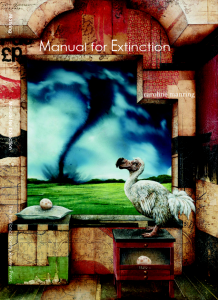 Manual for Extinction
Manual for Extinction
by Caroline Manring
The National Poetry Review Press, 2014
The earth in Manual for Extinction is a dour place where to be “alive was as good as dead.” The manual doubles as a field guide for understanding this wilderness-less mess, a contemporary big-boxed landscape that, lucky for us, Caroline Manring has surveyed with her poetic binoculars. Fans of “flotsam” will be pleased to find the word has survived End Times (hi flotsam!) and can be found in this book alongside lots of titles that start with the word how, as in “How to Go Extinct” and “How to Write a Debut Novel.” There are a few outliers, such as “The Cartographer’s Children Go Without Shoes,” an evolutionary meditation that invokes the proto-winged avian-ancestor, Archaeopteryx, in which “A fossil is deciding / whether to save us.” Manring demonstrates a cool familiarity with Biology while at the same time grappling with the paradox that Borges called exactitude in science. “A copy of a wolf & the wolf itself / are the same if you draw them both.”
A world of illustrated (aka dead) dodo birds, lost turkeys, and dilapidated human remains sounds shitty and scary but it is also quite literally what we’ve got. In place of live starlings and spring robins we might increasingly encounter the complexity of nature only in the complexity of research finding that predict diminishing populations of red-winged blackbirds, ruby-throated hummingbirds, and buffleheads alike. Manring writes in sympathy with these vanishing species, “I want less & less to be in present use.” Would that we were all to follow such a guide.
***
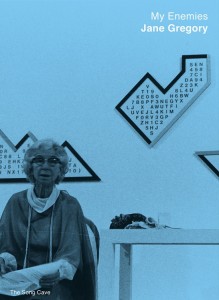 My Enemies
My Enemies
by Jane Gregory
The Song Cave, 2013
We’ve a lot to learn from My Enemies. As the title suggests, many things are often as much what they are as what they are not. Take, for example, Jane Gregory’s sonic yin and yang, “Cymbals / when washed up or out to sea are silent.” Much like the potential for both mute and crash held in tempered bell bronze, Gregory has set temporality in opposition to intuition, and by that I mean . . . listen to her ring like an animated slomotion gif of a Zildjian: “I recognize the tongue of the wolf / before it is in the wolf’s mouth.”
Wallace Stevens sez “Poems must resist the intelligence / almost successfully,” and My Enemies outmaneuvers the brain’s insistent cognition, which just cannot compute Jane Gregory. The many poems entitled “Book I Will Not Write” are, as announced, books never really written. But in the poetic summation of these non-books, the author has penned a must read.
Though unable to locate a single instance of “flotsam” inside this text, I found plenty of poetic words like “guncotton,” “ecdysis,” and “Proust.”
***
Peter Nowogrodzki lives in Hudson, NY
April 11th, 2014 / 10:00 am

